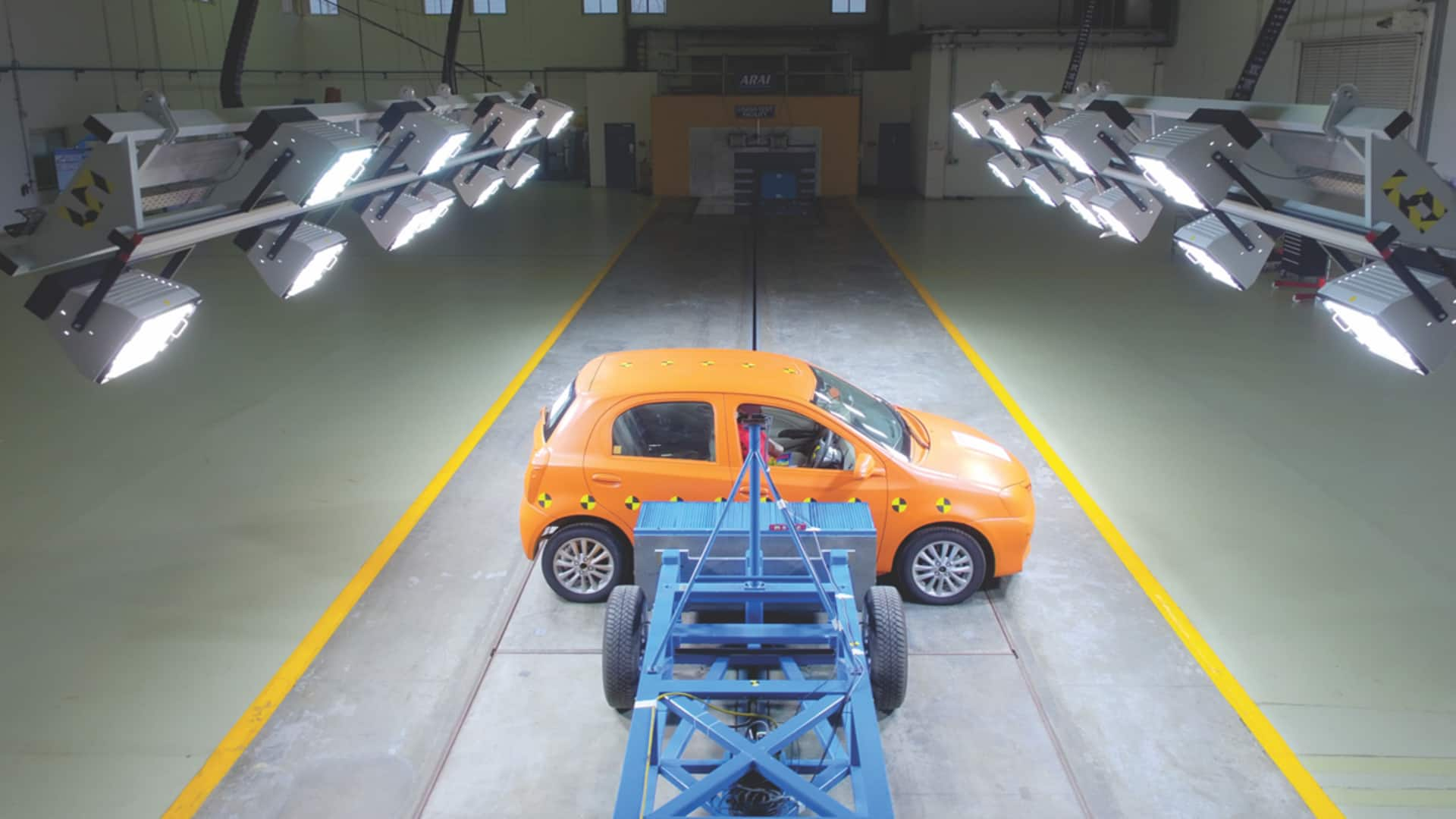
Bharat NCAP: India's first crash assessment program begins testing today
What's the story
India's indigenous car crash assessment program, Bharat NCAP, will start testing cars today. This move marks a new beginning in our automotive industry, with the focus shifting toward improving the safety of both the occupants and pedestrians in the event of a car crash. With over 36 cars slated to be tested at the new state-of-the-art testing facility, here's everything you need to know.
Context
Why does this story matter?
New Car Assessment Programs (NCAP) test new cars and give them a safety rating from zero to five stars. Apart from Global NCAP, several other countries have created their own programs to suit their needs. Now, with Bharat NCAP in place, Indians will be able to make better buying decisions by going through a car's safety rating.
Rating system
Here's how the rating system in Bharat NCAP works
Under Bharat NCAP, tested vehicles will get points according to the Automotive Indian Standard (AIS). They will be awarded a rating from zero to five stars based on the points they receive. The ratings start from one star (4 points for Adult Occupant Protection, 9 points for Child Occupant Protection) and go up to five stars (27 points for AOP, 41 points for COP).
Eligibility
Which vehicles are eligible for crash testing?
All vehicles in the M1 category, which have a gross weight of up to 3,500kg and are approved for carrying up to eight passengers apart from the driver, are eligible for testing under Bharat NCAP. All cars (domestic and foreign) will be assessed for frontal impact, side impact, and side pole impact tests, with separate star ratings awarded for adult and child protection.
Information
How does it differ from Global NCAP?
Although all tests conducted in both the Bharat and Global NCAP are similar, they differ in one important parameter. The former uses AIS-197 performance standards, while the latter follows the protocols used in the European region.
Models sent
Over 36 cars will be tested in the first batch
Several automakers have already enrolled for the first batch of testing. The list includes Tata Motors, Mahindra, Hyundai, and Maruti Suzuki. Tata Motors was the first to seek ratings for its new-generation Harrier and Safari SUVs, followed by Hyundai with its EXTER, CRETA, and VERNA. Kia Motors is also planning to send the new Seltos and Sonet to showcase their commitment to car safety.